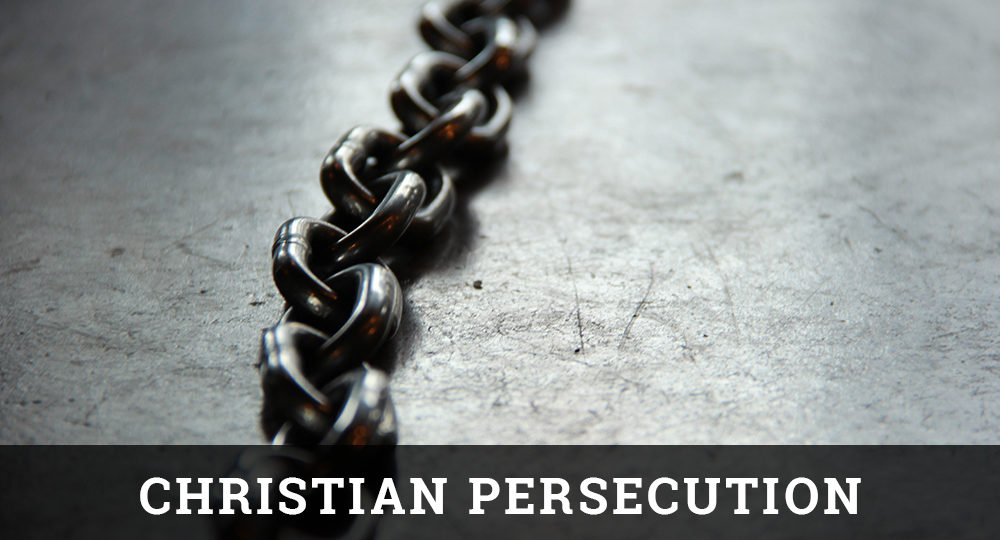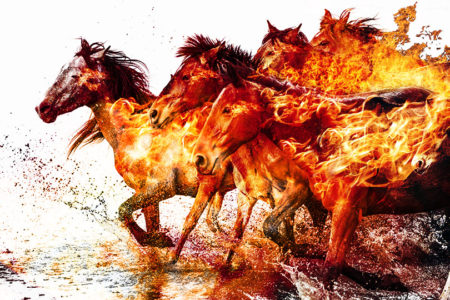Christian Persecution Mar/Apr 2020
CHINA—As more government officials in China are empowered to close churches and a “social credit” system threatens to block Christians from attending schools and obtaining bank loans and jobs, authorities have taken harsh measures against more churches.
China has installed 20 million surveillance cameras with advanced facial-recognition software to collect data for the purpose of establishing this “social credit” system to monitor perceived loyalty and dissent, notes Elizabeth Kendal of the Religious Liberty Prayer Bulletin, citing author Willy Wo-Lap Lam in his book The Fight for China’s Future.
The system is expected to be fully operational this year; but Kendal notes that noncompliant Christians and others, such as human rights attorneys, already find they cannot travel because negative social credit prevents them from purchasing a train ticket.
“The days are coming when whole Christian families will find themselves unable to access not merely transport, but schools, hospitals, bank loans and jobs,” she writes.
Such measures flow from the Chinese Communist Party (CCP) in 2012 that formulated five new “black categories” of groups to be quelled: human rights lawyers, underground religious practitioners, dissidents, commentators influencing opinion on the Internet, and disadvantaged social groups, Kendal states. The list echoes the “five black categories” of the 1966–1976 Cultural Revolution, when Chairman Mao Zedong designated landlords, rich farmers/peasants, counterrevolutionaries, evil influences, and rightists as enemies of the Communist revolution to be neutralized—re-educated and, if necessary, eliminated, she notes.
The actions are part of progressively harsher measures against Christianity and other faiths deemed a threat to the CCP rule since Xi Jinping became president in 2013. New religion regulations introduced in 2017 greatly expand the number of government departments that can enforce restrictions on religious practice, an attorney in China told The Epoch Times.
“Under the previous law, only the Religious Affairs Bureau would enforce religious restrictions,” the unidentified attorney told the news outlet. “Under the new law, every layer of government can regulate religious affairs. The fact that there are so many more officials cracking down on unregistered churches puts tremendous pressure on the members of those churches. . . . Chinese Christians are facing the most persecution since the Cultural Revolution in the 1960s.”
In Beijing, Early Rain Covenant Church elder Qin Defu has been sentenced to four years in prison, charged with illegal business operations as a result of the church using 20,000 Christian books, according to advocacy group China Aid Association.
Pastor Wang Yi, who was arrested more than a year ago, could receive at least 10 years in prison. He was charged with “inciting subversion of the state” and illegal business practices because he used Christian books.
Authorities commonly charge pastors with subversion because religion is regarded as a threat to the CCP and stability, according to the attorney quoted in The Epoch Times.
“These pastors have no right to legal representation,” the attorney said. “If they have someone brave enough to be their lawyer, the pastor can be beaten up before seeing that lawyer. And their attorney can be beaten as well.”
Pastor Wang was a human rights activist and a constitutional scholar before becoming a pastor.
In 2018 the U.S. State Department included China among 10 countries designated as Countries of Particular Concern for severe religious-rights violations. It ranked 27th on Christian support organization Open Doors’ 2019 World Watch List of the 50 countries where it is most difficult to be a Christian.
To read the full article by morningstarnews.org, go to tinyurl.com/t4uzzxj.








